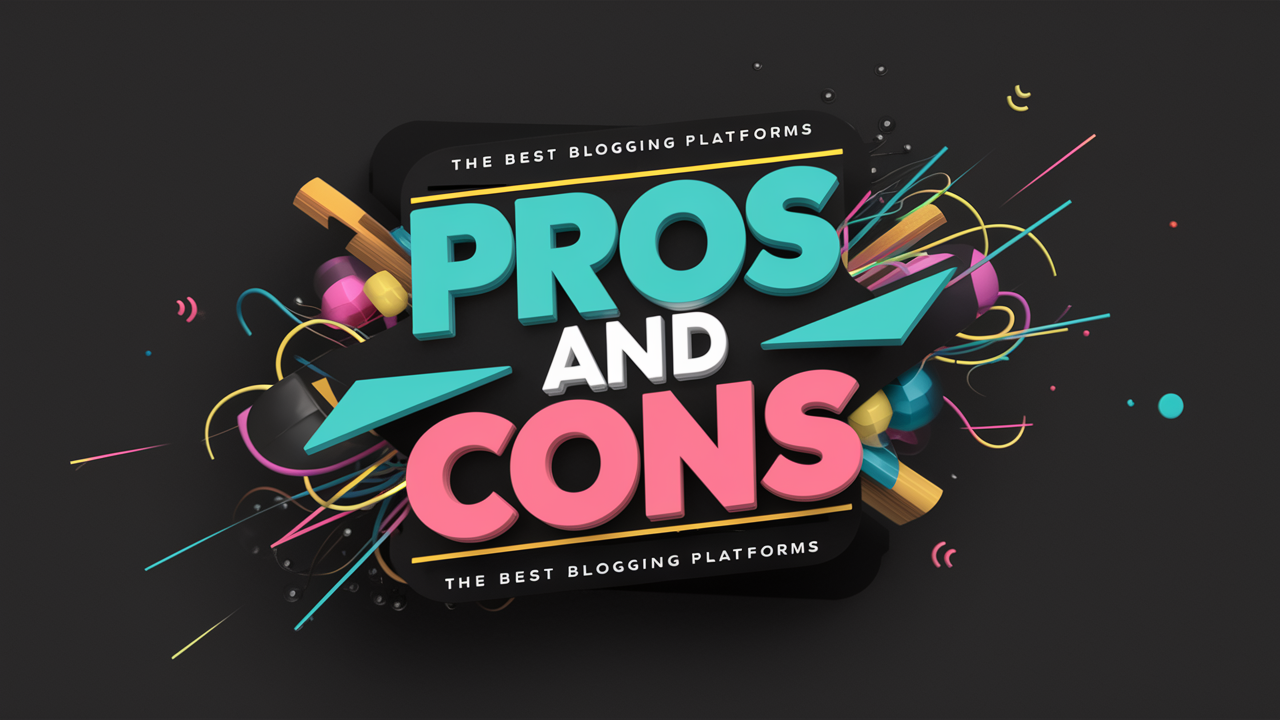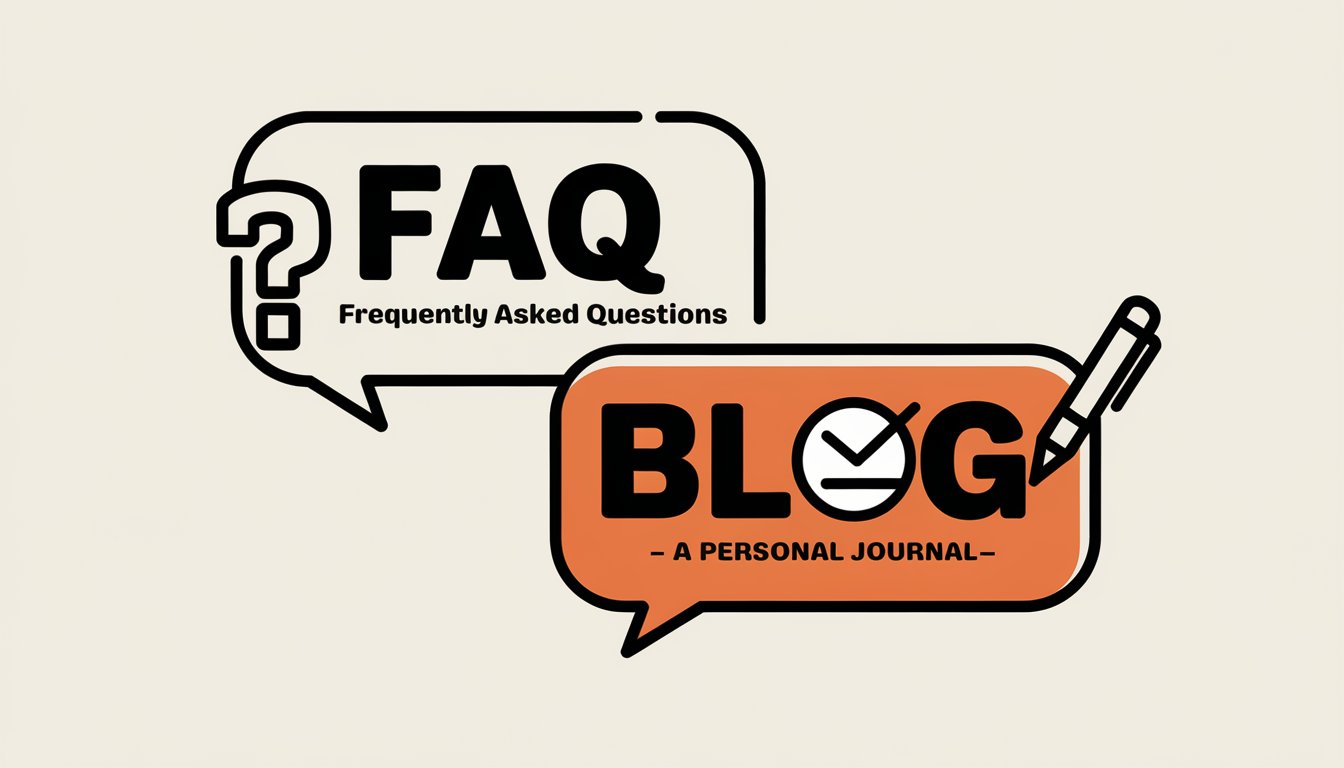Essential Blogging Platforms: Pros and Cons
Do you know that over 600 million websites are blogs? Every year, brands and individuals create over three billion blog posts. This makes finding the best blogging platforms very important. As a professional blogger, I’ve seen how these platforms can change the game, boosting readership and even income. Some US bloggers make just over $31,000 a year, while top earners can make up to $100,000.
But, nearly 94% of Medium writers make less than $100 a month. This shows how important it is to choose the right platform. Platforms like WordPress.org are huge, hosting nearly 40% of the internet’s sites. They also offer nearly 60,000 free plugins, showing how customizable they can be.
If you’re new to blogging or a pro, it’s key to know the pros and cons of each platform. Blogging is simple but limited in customization.
Get ready for a deep dive into blogging platforms. We’ll analyze their pros and cons, matching them with our goals and needs.
An Overview of Today’s Top 6 Blog Hosting Platforms
In 2024, the landscape of blog hosting is evolving rapidly. Selecting the right platform can significantly impact your online success. Here are some of the leading blog hosting platforms today, each offering unique features to cater to different needs:
- WordPress: Known for its extensive customization options and over 60,000 plugins, WordPress is ideal for bloggers and those looking for a unique site. Its flexibility makes it a top choice for both novices and seasoned bloggers.
- Joomla: Joomla offers versatility and is well-suited for those with some technical knowledge. It provides robust features and customization options, making it a solid choice for more tech-savvy users.
- Wix: With its user-friendly interface and a variety of plans, Wix is perfect for beginners. It includes built-in SEO tools, making it an excellent option for those just starting with their blogs.
- Squarespace: Squarespace excels in providing visually stunning designs with minimal effort. It’s ideal for creatives and professionals who want a beautiful, well-designed site. The business plan is affordable and offers significant value for those focused on aesthetics.
- Content Hub: This platform tailors to marketers and seamlessly integrates with HubSpot’s CRM. It provides free hosting and custom domains, making it a great choice for business blogs.
- Medium: Medium offers a built-in audience, which can help new bloggers gain traction quickly. It’s a good platform for those looking to establish themselves as thought leaders in their field.
Each platform provides various templates, customization options, and support, allowing you to choose the one that best suits your blogging needs.
Identifying Free Blogging Platforms for Beginners
When I started blogging, I was overwhelmed by the array of options. I quickly realized that starting with free blogging platforms was a smart move, as they saved money and provided the essential tools to start blogging.
WordPress.com was my first choice. Known for its ease of use and robust features, it powers 43.4% of all websites. The free plan, though limited, is perfect for new bloggers, allowing you to start quickly and easily.
Medium was another platform I explored. With over 60 million visitors monthly, it offers a significant opportunity for visibility. However, Medium’s limited customization means your blog might look similar to others.
Free blogging platforms like WordPress.com and Medium provide essential features and ease of use for beginners. They typically offer a variety of pre-designed templates and basic customization options, making it easier to create engaging content.
These platforms also come with user-friendly design tools that simplify the blogging process. They are excellent for learning and starting, especially if you’re on a tight budget. However, as you grow, you might need to invest in more advanced features.
Starting with a free platform allows you to gain experience and connect with others before committing financially. Your choice will depend on your needs, growth goals, and target audience. Using a free platform can offer valuable insights and prepare you for future blogging success.

Pros and Cons of Self-Hosted Blogging Platforms
Understanding self-hosted platforms, like WordPress.org, is crucial when starting a blog. These platforms offer significant control and flexibility but also come with their own set of challenges.
Pros:
- Complete Control and Flexibility: Self-hosted blogs allow you to fully control your site’s design and functionality. You can use custom themes, add unique features, and tailor the site to meet your specific needs.
- Customization: With self-hosting, you can modify every aspect of your blog, from the layout to the plugins, enhancing user experience and functionality.
- Monetization Opportunities: Self-hosted platforms provide more options for monetization, such as affiliate marketing, selling products, and securing sponsorships, which can lead to increased revenue and brand growth.
- Ownership and Independence: You have full ownership of your content and data without restrictions imposed by third-party platforms.
Cons:
- Technical Knowledge Required: Managing a self-hosted blog requires some technical skills. You’ll need to handle aspects like site setup, theme customization, and troubleshooting. For beginners, this might require additional learning or hiring help.
- Ongoing Costs: Although starting a self-hosted blog is relatively affordable, with hosting costs of around $5 a month and domain fees of about $15 a year, you’ll need to factor in additional costs for security, backups, and premium features as your blog grows.
- Maintenance Responsibilities: You are responsible for maintaining the site, including updates, backups, and security measures, which can be time-consuming.
- Potential Learning Curve: The initial setup and management might be challenging for those unfamiliar with blogging technologies, potentially requiring a steeper learning curve.
Weighing these pros and cons will help you determine if a self-hosted platform is right for you. It’s a great option for those looking for greater control and growth potential as long as you’re ready to handle the associated responsibilities.
Understanding User-Friendly Blogging Platforms
My search for the perfect blogging platform focused on ease, flexibility, and growth. In today’s world, picking the right platform can make a big difference in your blog’s success. Here, I’ll share insights on some top platforms that are easy to use and packed with features.
- Wix: With its easy drag-and-drop setup, Wix is great for beginners. It has over 110 million users, showing it’s a popular choice. You can start for free and upgrade as you go, making it a top pick among free options.
- WordPress: WordPress powers over 43% of all websites online. Users love it for its customization options, including over 59,000 free plugins. It suits both new and experienced bloggers who want a flexible framework.
- Squarespace: Squarespace focuses on looks and function. It gives you unlimited storage on all plans, making it easy to use and a top choice for bloggers.
- Hostinger: Hostinger is known for its affordable hosting, especially for WordPress users. It offers discounts up to 81% off, perfect for those on a budget.
Ease of use is a common highlight across these platforms, impacting how quickly you can set up and start your blog. Wix and Squarespace excel in simplicity and professional appearance, while WordPress shines with its extensive customization options.
Choosing the right platform involves balancing simplicity with functionality. Beginners might prefer platforms with straightforward layouts and content management, while experienced bloggers may seek the customization that WordPress provides.
Support systems are also vital for addressing technical issues or questions. Each platform’s support can make a significant difference in your blogging experience.
Digging Into SEO-Friendly Blogging Platforms
Choosing the right blog hosting platform is key to boosting your site’s SEO. SEO-friendly platforms have tools that help optimize your content and structure. This is vital for getting more visibility in search engines. Let’s explore why these platforms are important for your blogging success.
Importance of Built-In SEO Tools for Blog Visibility
WordPress.org is a top choice because of its strong SEO plugins and customization options. With over 50,000 plugins, including Yoast SEO, it sets a solid base for optimizing your blog posts. These tools help improve page titles and meta descriptions and check how readable your content is. This ensures your blog is both SEO-friendly and easy for readers.
Comparison of Organic Reach Potential Across Platforms
Having the right tools is important, but so is how your content performs online. WordPress powers 41% of the internet and excels in Google rankings, beating competitors like Squarespace and Wix. This organic reach is key for bloggers who depend on search traffic. Choosing platforms that focus on SEO is a smart move for long-term success.
When picking a blog hosting platform, don’t forget the value of built-in SEO tools. These tools can greatly affect your blog’s visibility and organic reach. By choosing the best platforms, you make SEO easier and boost your blog’s ability to draw in and keep more readers.
Content Hub vs Medium: Platforms Built for Marketers
When choosing a blogging platform for marketing, Content Hub and Medium each offer distinct features tailored to different needs.
Content Hub is a self-hosted platform by HubSpot designed specifically for marketers who require advanced, data-driven tools. Its adaptive testing feature allows users to test different content versions to determine which performs better in terms of engagement and conversions. This capability is crucial for optimizing marketing strategies and improving results over time.
Medium, on the other hand, provides immediate access to a large built-in audience. This can be advantageous for marketers seeking quick exposure. However, it also means less control over who sees your content, as Medium manages the audience and distribution.
Ultimately, the choice between Content Hub and Medium depends on your marketing priorities: whether you value in-depth control and data-driven insights or the benefit of reaching a broad audience quickly.
The Intricacies of Blog Monetization Features
Exploring the many ways to make money from blogs can really boost a blog’s earnings.
- Affiliate Marketing: This is a simple way to make money. I add affiliate links to my posts and earn a commission when people buy through those links. It’s important to be honest with my readers and only recommend products that fit my blog’s theme and their interests.
- Banner Ads: Adding banner ads is another way to earn. I work with ad networks like Google Adsense or Mediavine to show ads that match my blog. I earn based on how many people click or see the ads.
- Direct Product Sales: Selling products or services directly on my blog is another way to make money. I list products and handle payments securely using e-commerce tools.
These methods bring in money and make my blog look more professional.
Best Blogging Platforms for Aspiring Thought Leaders
Finding the right platform to share your insights is key. It’s not just about posting content. It’s about picking a space that boosts your brand and proves your expertise. You want to choose from the top blogging sites that offer visibility, community interaction, and brand growth that matches your career goals.
WordPress is a leading choice, powering nearly half of the world’s top websites and reaching over 409 million readers monthly. Its vast library of over 55,000 plugins and 7,000 themes provides extensive customization options to enhance your brand.
Drupal and Joomla are strong alternatives, offering excellent customization with less coding required. While their user bases are smaller than WordPress’s, they still support effective community engagement and brand development.
Choosing the right platform will significantly impact your ability to connect with your audience and establish your thought leadership.
Unlock Blogging Success With After Social
Choosing the right blogging platform is a critical step in your journey as a blogger, especially in 2024’s rapidly evolving digital landscape. Whether you prioritize customization, ease of use, or built-in audience reach, platforms like WordPress, Squarespace, Wix, and Medium offer tailored solutions to meet your specific needs.
By carefully weighing the pros and cons of each platform, you can align your choice with your goals—whether it’s boosting SEO, monetizing your content, or building a strong personal brand. The right platform not only simplifies the blogging process but also enhances your ability to connect with your audience and achieve sustained success.
You’ve just scratched the surface of what’s possible with the right blogging platform. At After Social, we provide a wealth of resources that go beyond platform comparisons. Our blog offers expert strategies, practical tips, and detailed guides to support you at every stage of your blogging journey.
Visit After Social today to access our full range of resources and take your blogging skills to the next level.






Post Comment